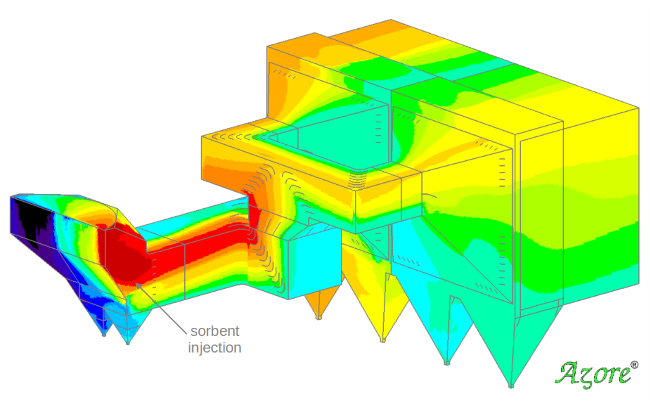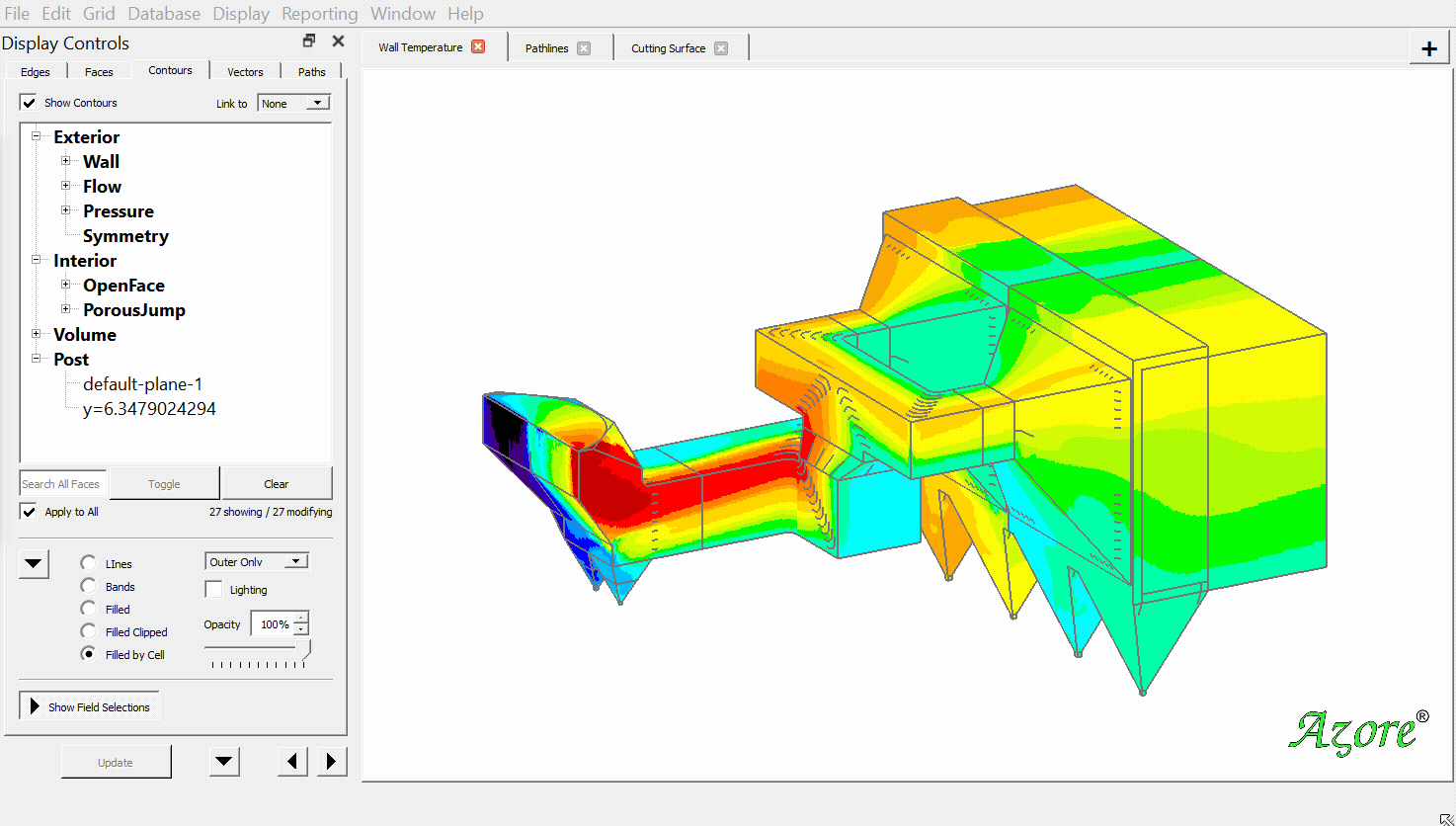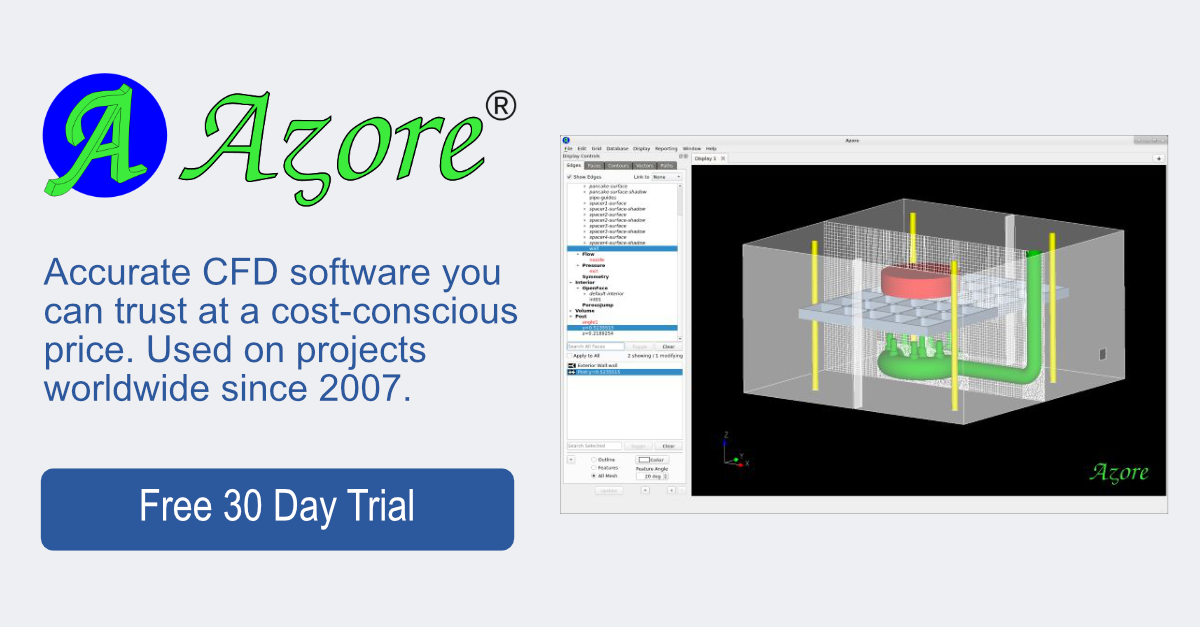Modeling with a Rotating Boundary Condition
By Kelly Hile
User Defined Tasks within AZORE®
A User Defined Task (UDT) is an excellent way to add unique capability to your CFD model. In AZORE®, a UDT is a modification that can be imposed by the user either before, during, or after a simulation. In this way an engineer can customize the solution physics to address any number of physical scenarios that are known to occur in the process being studied.

To demonstrate this, let’s highlight a particular case where a UDT was created to impose a rotating boundary condition on a model with a rotary air heater. Rotary air heaters are used in power plants to preheat cold air that feeds into a boiler. When creating a model that includes a rotary heater, an engineer would typically assume a uniform temperature of the gas exiting the heater. This assumption conveniently simplifies the modeling process. However, in this case, the processes downstream from the heater depended highly on temperature, and the main focus of the study was to observe the impact of these temperature variations.

By creating a UDT, the AZORE® user was able to modify the temperature and momentum profile through the heater to incorporate the rotational effects on temperature into the CFD model. This analysis was performed for a U.S.-based power plant, and the results showed just how much the temperature of the gas can vary due to the rotating nature of the equipment. In this plant, the thermal mixing was making it difficult for pollutants like SO3 to be removed effectively in the downstream sorbent injection process.
AZORE® is an affordable, state-of-the-art CFD software for modeling fluid flow and heat transfer in 3D simulations, and it has the flexibility to be used with UDTs. The combination of a powerful CFD tool like AZORE® with the ingenuity of a simple, effective UDT allows for a host of new possibilities in modeling.

